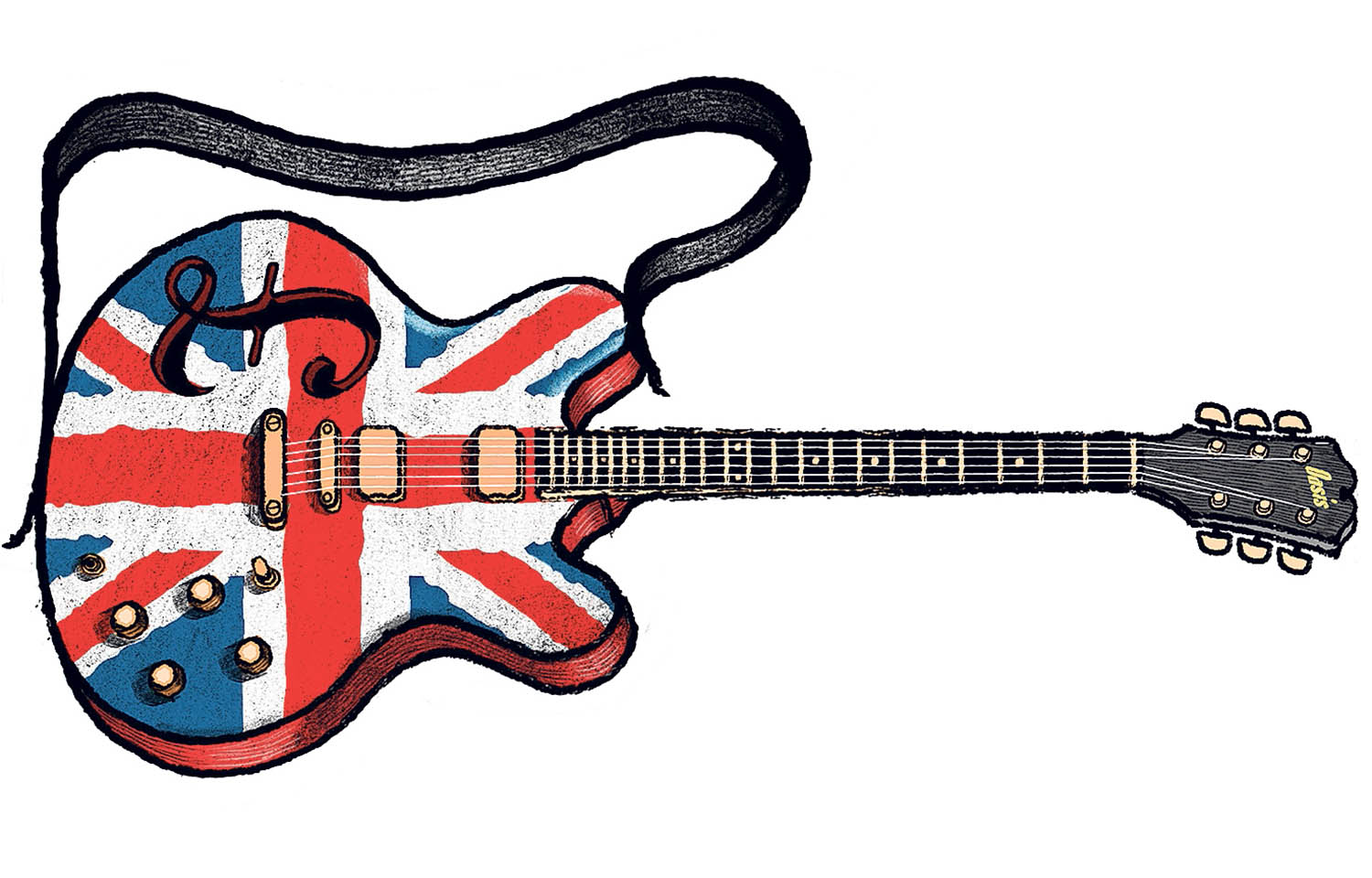Illustration by David Foldvari
Last week the Oasis circus left England and rolled into Edinburgh, where Liam Gallagher had a message for the powers that be. The city council – who in a leaked memo called Oasis fans “fat drunks” – were “fucking slags”. “One billion pounds we’re bringing into this city over the next three days,” Gallagher told the crowd mid-concert. “One billion pounds. But you won’t see any of it because the Lord Provost will be splitting it between [his] posh ugly fucking mates.”
Predictably, the crowd went wild. This was Liam Gallagher back to his best: criticising the establishment, telling the posh uglies where to go. This was Liam Gallagher the rock’n’roll star. They loved it.
But is this not just a little bit hypocritical? Aren’t Oasis by now part of the establishment themselves?
It’s true that the Oasis reunion tour, like Taylor Swift’s Eras tour before it, is not just a concert but an economic event. The band’s presence brings an obscene boost to the economy of every city they grace, not just in terms of tickets and merch but in food and drink (and drink and drink and drink and drink) sales, and hotel and Airbnb bookings that can go for thousands of pounds a night thanks to the same “dynamic pricing” that was applied to the concert tickets last summer.
But it will also make the band’s members, particularly Liam and Noel, phenomenally rich(er). Analysis from Birmingham City University published last week suggests the tour could make £400m in ticket sales and other add-ons, and that the Gallagher brothers are in line to earn £50m each. The pop-up Oasis store on London’s Carnaby Street has a queue out the door rivalled only by those shops beside Selfridges that sell Labubus. And the effect is not reserved for the high street: the most played song on the radio this year is Wonderwall, and Oasis’s daily Spotify streams are up 197% globally.
Today, all of last summer’s nastiness about ticket gouging is largely forgotten, except when fans are berated on social media for daring to use their phones during the concert and not fully appreciating the moment. This is partly because we tell each other that Oasis is worth the money, that Oasismania is a spot of joy in an otherwise bleak summer. But it’s also because Oasis are not the anomaly: price gouging is now the rule not the exception. Every concert or event has become a naked cash grab, with little done to make tickets affordable.
That there is only one Oasis is not just down to the band’s ability to craft anthems, capture moments and wear parkas on stage in 30C heat. It’s also thanks to a slightly grubbier truth: if Oasis started out as a band today, there is very little chance they would reach the same level of success. Because today there is a paltry number of young artists from the same background as Oasis. Today the music industry is full of the same posh uglies that Liam Gallagher berated in Edinburgh.
Newsletters
Choose the newsletters you want to receive
View more
For information about how The Observer protects your data, read our Privacy Policy
Or to put it in less inflammatory terms, the music industry in the UK – like all creative industries – is now a less accessible, more privileged place. Last year, while millions of us were clamouring for Oasis tickets, the Sutton Trust published research that revealed stark class disparities in the modern creative industries. Even though only 6% of the British population attended private school, privately educated young people represent more than half of music students at the country’s most prestigious conservatoires. Top-selling musicians and Bafta-nominated actors are, respectively, six and five times more likely than the general public to have attended private schools.
Young adults from working-class backgrounds are four times less likely to work in the creative industries, compared to their middle-class peers. Earlier this year, Sam Fender, from North Shields, hit out at the current state of affairs. “The music industry is 80%, 90% kids who are privately educated,” he told the Sunday Times. “A kid from where I’m from can’t afford to tour, so there are probably thousands writing songs that are 10 times better than mine – poignant lyrics about the country – but they will not be seen because it’s rigged.”
The Gallagher brothers, from a working-class Irish immigrant family in Manchester, were discovered when A&R man and founder of Creation Records Alan McGee came across them by chance during a gig in Glasgow. They were frequently under or unemployed. Noel wrote some of Oasis’s earliest songs while working on building sites; Liam was out of work so often his nickname was “Doley”. Today the only people pursuing creative jobs while living this precariously are those who can afford to do so. And being discovered relies less on playing gigs and more on waiting to be surfaced via the capricious TikTok algorithm artists have to funnel their songs into.
By the time Oasis had reached the peak of their Britpop fame, and long before their 2009 split, they had firmly transcended their roots. They had embedded themselves within the same establishment Liam is still criticising. It might have been seen as a cool establishment at the time, but it was an establishment all the same. The defining image of the Cool Britannia era is not Liam Gallagher in his Aran jumper at Knebworth in 1996 but Noel holding a glass of champagne and shaking Tony Blair’s hand at a Downing Street party in 1997.
It is, of course, not Oasis’s fault that they became rich and famous, or that few others followed them to the kind of success that saw them smash the class ceiling. Oasis are not the only working-class musicians to have ascended and then pull the ladder up behind them (although it is notable that, rather than filling their reunion support cards with new talent that could use a boost, they’ve chosen instead to put the spotlight on Richard Ashcroft and Cast).
Perhaps it’s our fault. Maybe we are the ones neatly tidying away the ladder upon which Oasis ascended by leaning into nostalgia, making a 30-year-old song the bop of the summer and willingly paying thousands of pounds to see a band we liked when we were younger, cooler and freer, and when the country we live in seemed a younger, cooler and freer place. We might say: “Well, there’s only one Oasis.” But are we letting ourselves off the hook? Of course there’s only one Oasis. That doesn’t mean there should be.

